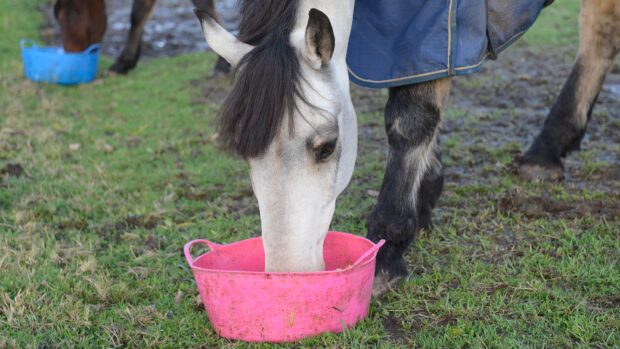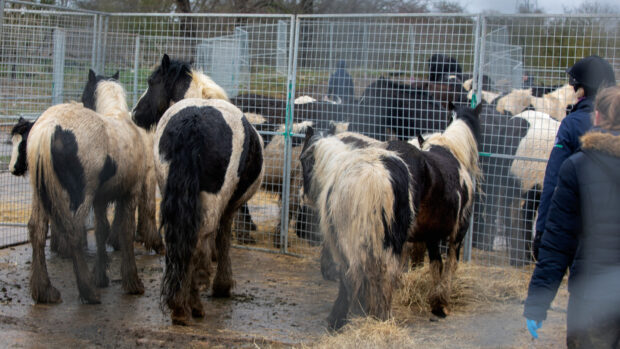While for most of us, competing isn’t about making a profit – most would count themselves lucky if any prize money we do pick up covers the costs of travelling to the venue – you may have wondered how elite riders manage to make it work and which horse sports have the best prize money?
Best prize money in horse sports: racing
It won’t come as a surprise to many of you, but horse racing is far and away the most lucrative horse sport. In Britain, there are minimum prize money levels which are set by the British Horseracing Authority (BHA), and are designed to ensure fairness.
In 2023, the BHA raised minimum prize money values to their highest-ever levels. Group One Flat races have increased by £50,000 to £200,000 for two-year-olds and £250,000 for those three and up.
For National Hunt racing, Grade One chases have a minimum prize pot of £150,000, and Grade One hurdles £100,000.
“At a time when the sport is facing a number of challenges, it is particularly important that industry agreement has been reached on raising minimum prize money values,” said Richard Wayman, Chief Operating Officer of the BHA.
He explained that the main reasons for the increase were: “a significant growth in the number of higher rated horses being sold overseas and, over jumps, an increasing number of the best horses being based elsewhere.”
In reality, though, the prize funds can be a lot higher, with races becoming more valuable based on the income they generate. For example, as a heritage Grade Three handicap chase, the Grand National needs to be worth a minimum of £100,000 but in 2023 it carried a £1 million prize fund, with £561,300 going to the winner.
Also in 2023, the Derby at Epsom, a Group One event for three-year-olds, was worth £1.5 million, while the Grade One Cheltenham Gold Cup had a prize fund of £625,000.
However, the riches on offer in the UK are dwarfed by some races overseas, such as the Saudi Cup in Riyadh which had a total prize pot of $20 million in 2023.
How much each jockey takes home depends on their contract, but as a general rule they tend to take around 10% of the prize money for winning.
Showjumping
Showjumping carries the second-best prize money available in horse sports at the highest level and most of the three Olympic disciplines. In many instances it can match – or even outstrip – the glitz, and glamour found in racing.
The exclusive Longines Global Championships Tour (GCT) and Global Championship League (GCL) are renowned for their substantial prize pots and prioritise providing substantial rewards to their participants, making it an attractive option for top riders seeking lucrative opportunities.
In 2023, the two had a total prize pot of over €36 million combined, with a minimum prize value of €308,600 for each GCT grand prix, of which 33% goes to the winner. Dutch rider Harrie Smolders topped the 2023 standings to take home €1,291,985 in prize money.
The prize pot for the FEI Jumping World Cup Final in Riyadh was also increased from €1.3 million to €2.6 million, thanks to a donation by the organiser that makes it the highest amount ever seen at a finals.
The total amount of prize money for World Cup qualifiers must be at least €28,200, but again in many instances it is higher. For example, the prize pot at the World Cup qualifier at the London International Horse Show was worth €170,000, with winner Ben Maher taking home €42,500.
Domestically, cash prizes must be offered at all British Showjumping (BS) affiliated competitions, except for Club, School, Training and Academy categories. BS also sets minimum prize levels for different categories.
Category one classes, which go up to 1.15m, range from £25 for winners to £100. Category two classes, with a maximum height of 1.40m, also range from £25 to £100 but are restricted to a maximum prize pot of £3,500 per show day. Category three classes range from £100 minimum prizes for newcomers and £2,000 for international trials.
Eventing
Prize money in eventing is less regulated than in the other Olympic equestrian sports but CCI5* events must have a minimum of €125,000 in prize money available, which is set to increase to €150,000 in 2025.
The Mars Badminton Horse Trials in 2024 carries a prize pot of £403,200 – an increase of 12% on 2023 – while Oliver Townend and Ballaghmor Class took home £110,000 for winning the 2023 Defender Burghley Horse Trials.
Also in 2023, the Adelaide Equestrian Festival had a $49,500 prize for its five-star winner and the Land Rover Kentucky Three-Day Event $123,000. However, there are no minimum prize requirements for levels below CCI5*.
Yasmin Ingham claimed €49,000 for winning the eventing World Championships on Banzai Du Loir – a competition with a total prize pot of €272,000.
For British Eventing (BE) a table of minimum percentages for section winners replaced upper and lower limits for placed competitors in 2022.
Since 2023 all national classes must award prize money and the winner will always take home at least the entry and start fee (before VAT). At BE80 to BE105, first place will be at least 100% of the entry and start fee, rising to 140% at novice, 150% at intermediate and 200% at advanced.
Prize money will also be allocated as a fixed percentage of the section revenue, which is the number of dressage starters multiplied by the entry fee, plus the start fee less VAT. For BE80 to BE105, that is 7.8%, for novice 13.3%, intermediate 16% and advanced 24%. Prize money is paid out in proportion to the number of starters of the dressage phase, with one in eight receiving prize money at BE80 to BE105, one in seven at novice, one in six at intermediate and one in five at advanced.
Dressage
While the 2024 showjumping World Cup Final saw an increase of €1.3 million, the dressage final saw an increase of €100,000 to €400,000.
Despite being significantly less than showjumping, there are still quite a few notable events on the dressage calendar that carry big prize pots. The Lovsta Top 10 at the Stockholm CDI5* had a prize pot of almost €225,000 for the freestyle in 2023, while the Aachen CDIO5* had a prize pot of €234,000 distributed across the grand prix, the special and the freestyle.
For CDI4*s, there is a minimum requirement of 24,000 Swiss francs (CHF) in prize money and CDI5*s must provide a minimum of 90,000 CHF.
At the 2022 World Championships, Lottie Fry’s combined €40,500 for winning the freestyle and €30,800 for winning the special outstrips the €49,000 Yasmin Ingham won, individually.
At British Dressage (BD) events prize money is mandatory for classes with more than four starters and the amount given for the first prize must exceed the entry fee. However, where prize money has been provided by a sponsor, such as at regional or national championships, the prizes must be awarded regardless of the number of starters.
Prize pots at the regional level rarely exceed a few hundred pounds, which is increased to a few thousand pounds at the national championships, with the highest individual prize – which stood at £2,000 in 2022 – going to the rider of the combination with the highest combined marks from the grand prix and the freestyle.
Other sports
The 2024 Gauntlet of Polo held in Florida – considered by many to be the most prestigious polo competition, and known colloquially as “the richest prize in the sport”– has a prize pot of $200,000 which is distributed across the C.V. Whitney Cup, USPA Gold Cup and the U.S. Open Polo Championship.
In 2023, the Ariat World Series of Team Roping Finale paid out $16 million in payouts across nine divisions – an amount that tops all other Western equestrian sports. The Pink Buckle which is the highest-paying barrel race, paid out $4.1 million to its competitors in 2023, with Brittany Tonozzi the top-earning rider on $301,984.
The FEI Driving World Championship had a prize pot of €72,000 for the team competition and €34,000 for the final individual classification in 2022 – with a further €53,000 available across the dressage, marathon and cones test.
You may also be interested in…

Jodie Hall McAteer: ‘The glitz and glamour of elite showjumping may appeal on Instagram, but logistically it can prove exhausting’

New record prize money for Badminton’s 75th anniversary

Subscribe to Horse & Hound magazine today – and enjoy unlimited website access all year round
Horse & Hound magazine, out every Thursday, is packed with all the latest news and reports, as well as interviews, specials, nostalgia, vet and training advice. Find how you can enjoy the magazine delivered to your door every week, plus options to upgrade your subscription to access our online service that brings you breaking news and reports as well as other benefits.






